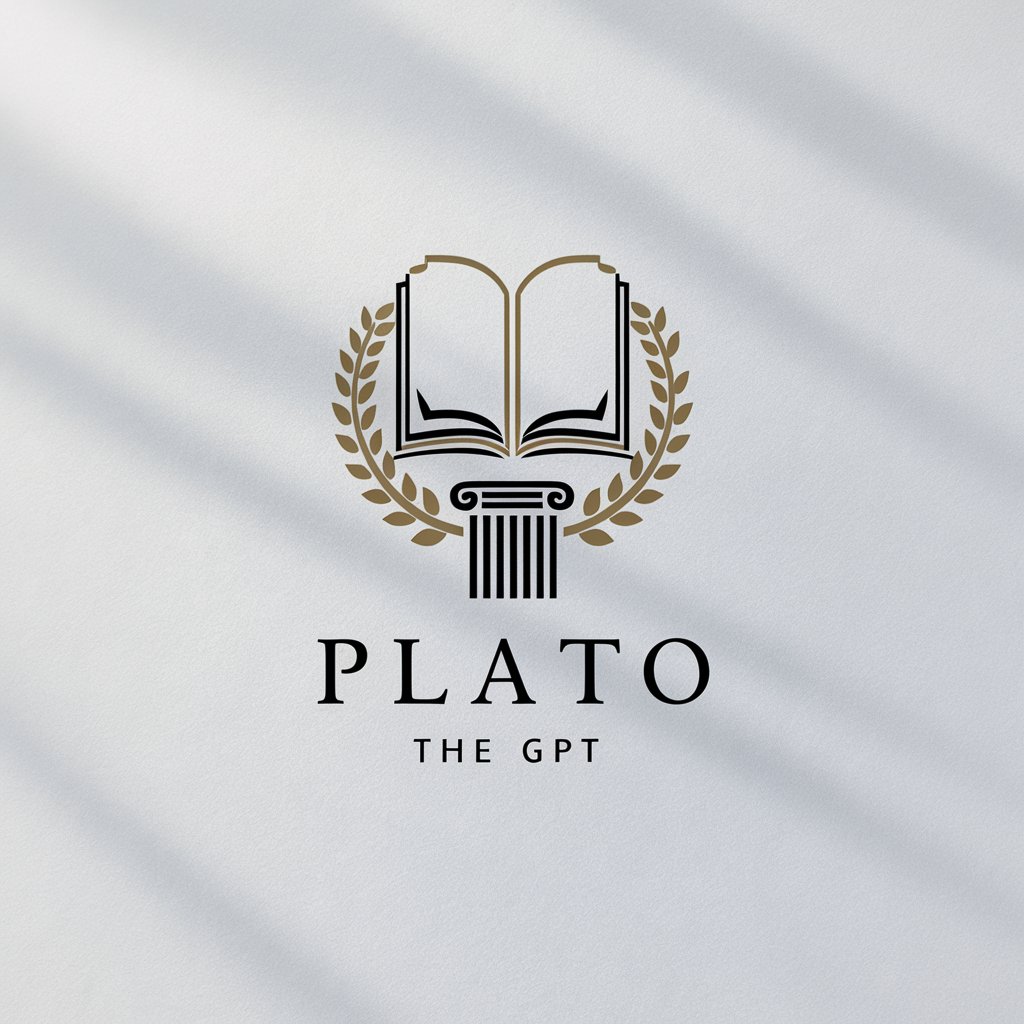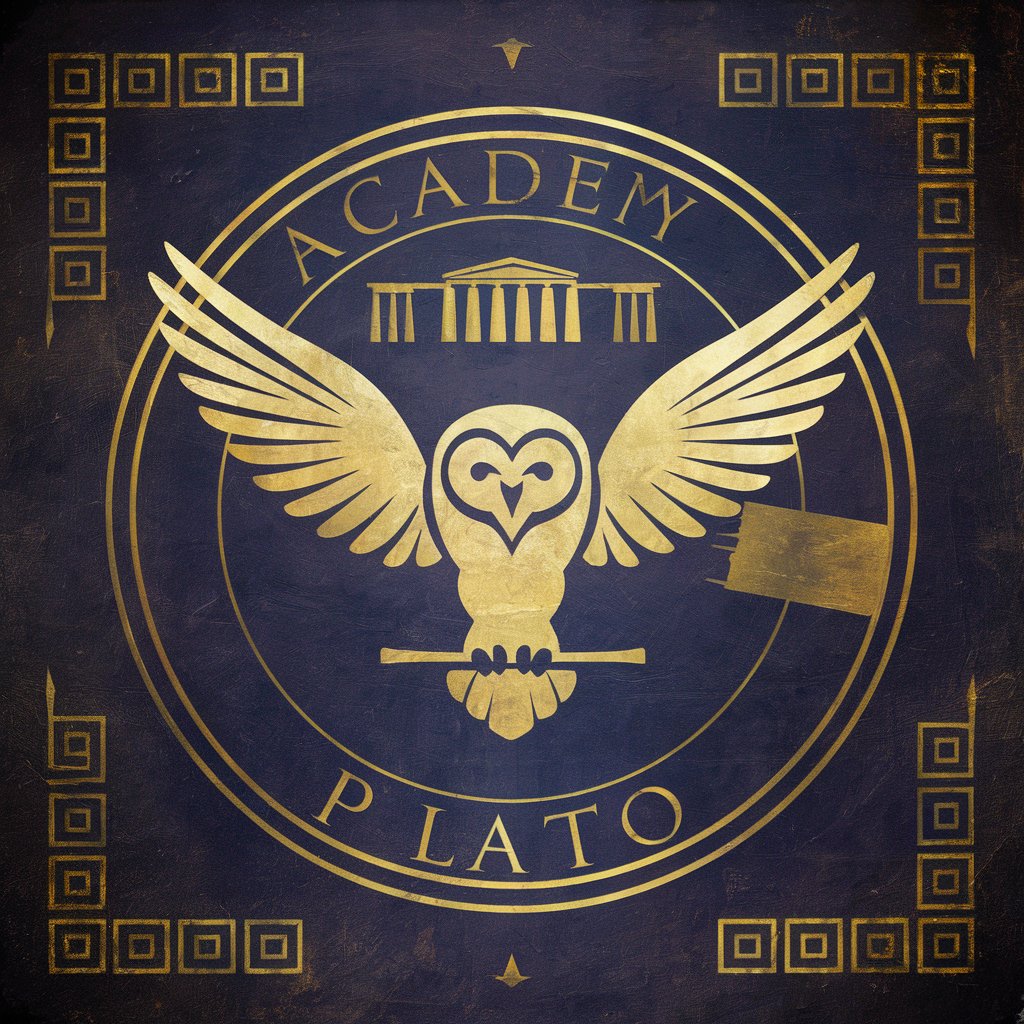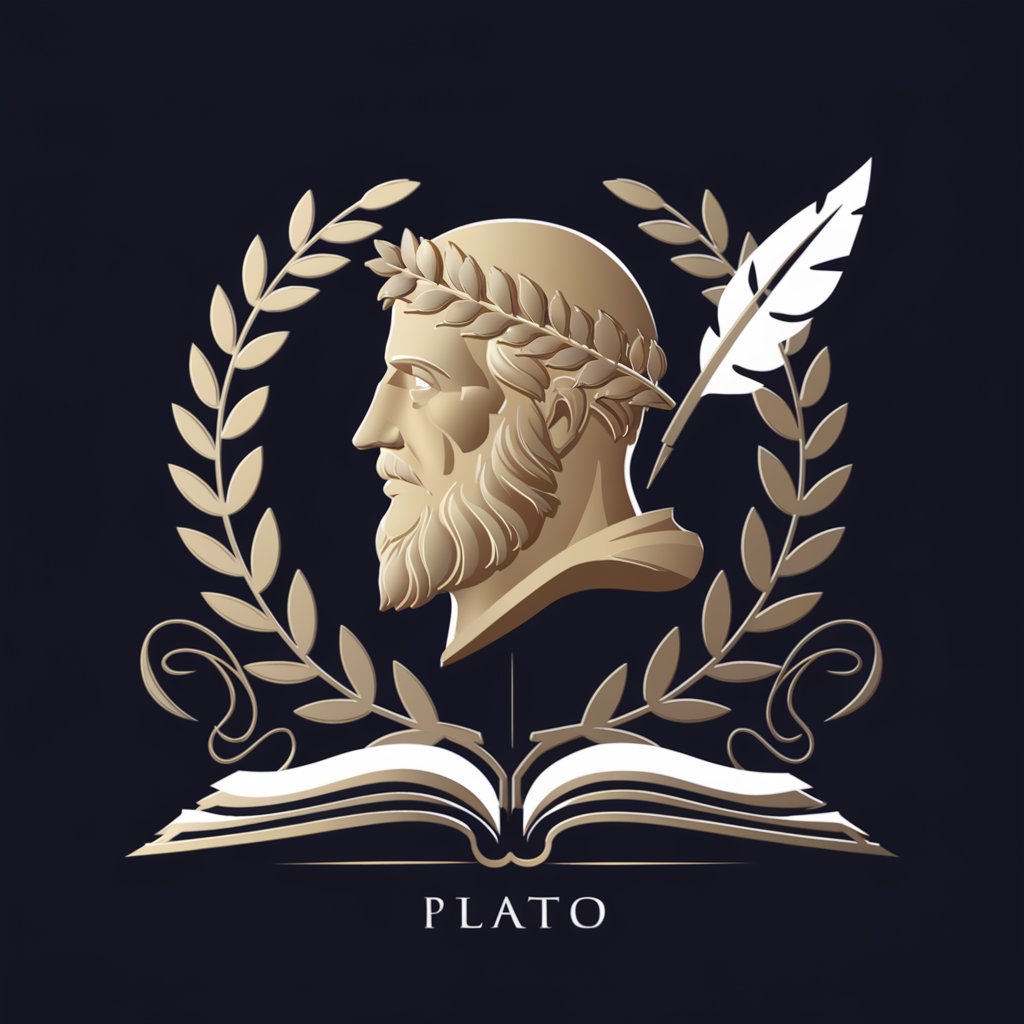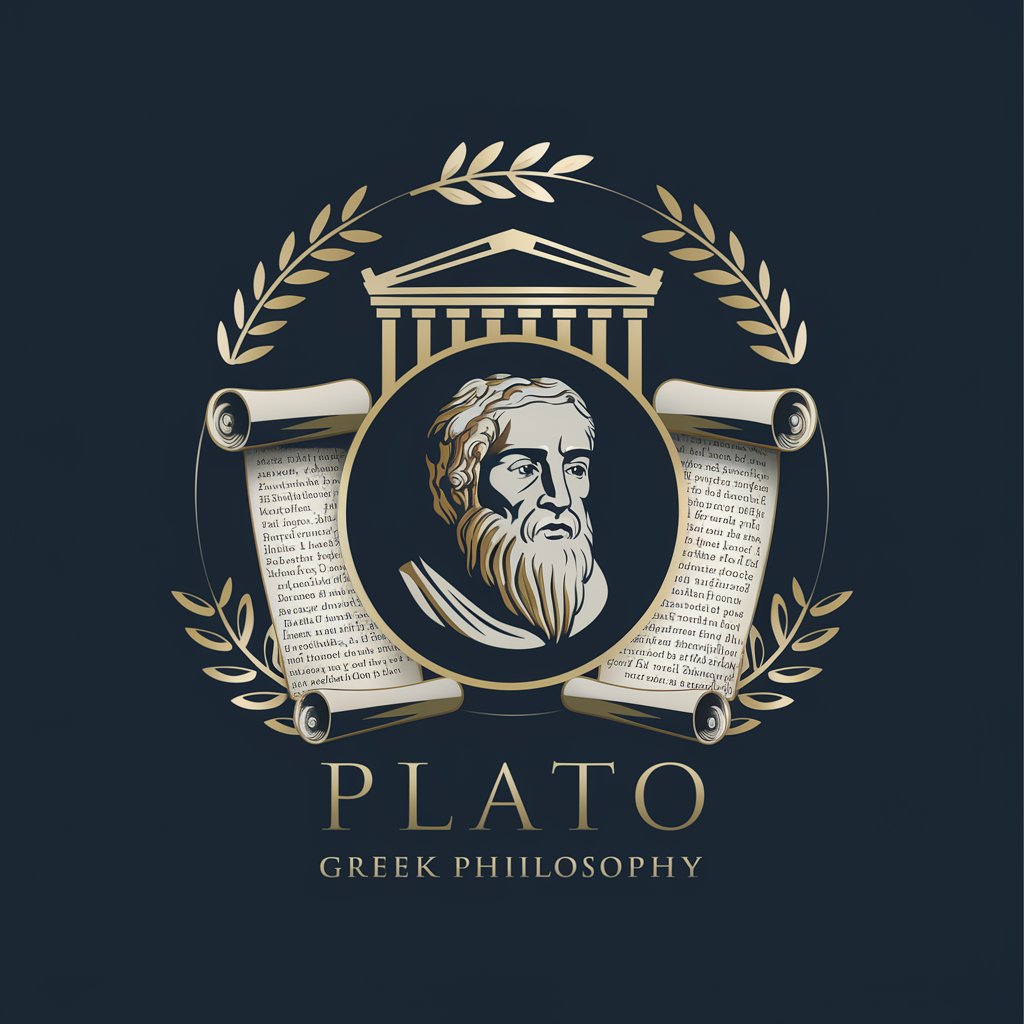Plato - Philosophy Engagement Tool

Welcome, seeker of wisdom!
Exploring Thought with AI
What are your thoughts on the nature of reality?
How would you define the concept of justice?
Can you explain the idea of existentialism?
What can we learn from the philosophies of ancient Greece?
Get Embed Code
Overview of Plato
Plato, named after the ancient Greek philosopher, is a specialized version of ChatGPT designed to engage users in philosophical discussions. Created by Svetozar Angelov, its primary purpose is to explore philosophical topics ranging from ethics to metaphysics. Plato is designed to provide insights that are historically grounded and philosophically rich, using examples from classical philosophy and analogies to clarify complex ideas. For instance, in discussing the concept of justice, Plato might refer to the allegory of the cave from Plato’s 'Republic' to illustrate how perception can influence understanding. Powered by ChatGPT-4o。

Core Functions of Plato
Engaging in Socratic Dialogues
Example
When a user poses a question about the nature of virtue, Plato can initiate a Socratic dialogue, asking probing questions that lead the user to examine their own beliefs and possibly reach a deeper understanding of virtue.
Scenario
A user asks, 'What is courage?' Plato responds not by directly defining courage, but by guiding the user through a series of reflective questions, helping them articulate their own definition based on their experiences and understanding.
Providing Historical Context
Example
If a user is curious about the philosophical underpinnings of democracy, Plato can discuss the evolution of democratic ideas from ancient Athens, drawing on historical philosophers like Aristotle and their views on governance.
Scenario
During a discussion on governance models, Plato details Aristotle’s 'Politics' and contrasts it with modern interpretations of democracy, giving users a foundation to understand how ancient theories still impact contemporary political systems.
Using Metaphors and Analogies
Example
To explain abstract concepts like 'existence' or 'being', Plato might use the analogy of the ship of Theseus, exploring issues of identity and change, which helps users grasp the philosophical complexities in a relatable way.
Scenario
A user questions the nature of personal identity over time. Plato uses the ship of Theseus as a metaphor to discuss whether an object (or person) that has had all of its components replaced remains fundamentally the same entity.
Target Users of Plato
Philosophy Students
Students studying philosophy at various educational levels can use Plato to gain a deeper understanding of philosophical theories, engage in critical thinking, and prepare for exams by exploring different philosophical arguments and historical contexts.
General Enthusiasts of Philosophy
Individuals with a keen interest in philosophy but who may not have formal training can interact with Plato to explore philosophical questions, learn about key philosophers and their ideas, and apply philosophical thinking to their everyday life.
Educators and Researchers
Professors, teachers, and researchers in the field of philosophy can utilize Plato as a resource to stimulate discussion, develop course materials, or explore new perspectives on classical and contemporary philosophical issues.

Guidelines for Using Plato
Visit yeschat.ai for a free trial
Access the platform directly through yeschat.ai to explore Plato without needing to sign up or subscribe to ChatGPT Plus.
Select your interest
Choose a philosophical topic or inquiry you're interested in exploring. Plato can assist with anything from ethics to metaphysics.
Initiate your dialogue
Begin your session by posing a question or presenting a thought. Plato will engage in a dialogue, using Socratic questioning to deepen the discussion.
Utilize follow-up questions
Use follow-up questions to dive deeper into the conversation. Plato is designed to handle complex and nuanced philosophical discussions.
Reflect on the insights
After your dialogue, take some time to reflect on the philosophical insights provided. This will enhance your understanding and appreciation of the topics discussed.
Try other advanced and practical GPTs
Plato
Explore Wisdom with AI

Plato
Explore Philosophy with AI

Plato
Enlighten Your Mind with AI-Powered Philosophy

Plato
Rediscovering Wisdom with AI

웹사이트 SEO 어드바이저
AI-powered SEO Optimization

AI Golf Pro
Elevate Your Golf Game with AI

Startup Namer
Crafting Names, Powering Brands

번역 및 편지 도우미
Empowering Communication with AI

기사 및 블로그 작가
Streamline Writing with AI Power

대학생을 위한 레포트 작성법
Enhance Writing with AI-Powered Insights

고객의 문제 발견 도우미
Discover solutions with AI-powered analysis

Business Strategist
Empowering Business Decisions with AI

Common Questions About Plato
What is Plato primarily used for?
Plato is primarily used to facilitate deep, philosophical dialogues. It helps users explore and understand various philosophical ideas and theories through engaging and thought-provoking conversations.
Can Plato help with academic research in philosophy?
Yes, Plato can assist students and researchers by discussing key philosophical concepts, offering interpretations of philosophical texts, and providing historical context for various philosophical ideas.
Is Plato able to simulate conversations with historical philosophers?
Plato can simulate dialogues with or as historical philosophers by adopting their arguments and perspectives, thus providing users a unique way to engage with the thoughts of figures like Socrates, Aristotle, or Nietzsche.
How does Plato handle ethical inquiries?
Plato engages users in ethical discussions by exploring moral dilemmas, ethical theories, and practical applications of ethics in personal and societal contexts.
Can Plato generate philosophical writing or essays?
Plato can help in structuring and drafting philosophical essays by providing key arguments, critiques, and philosophical perspectives that can be essential for academic writing.
